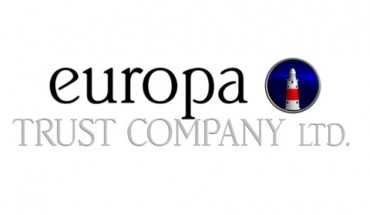
Real (Local) Stories & Practical Tips
Cancer in the Workplace
Let’s be honest: no one plans for cancer. When it strikes, it ripples through every part of life, including work, family, health, and even workplace dynamics. The impacts are not just physical, but emotional, social, and financial.
Whether you’re a colleague or a manager, navigating cancer in the workplace can be tricky, but there are many ways you can create a supportive environment to help people recover, return and thrive.
In this article, we’ll explore how you, as an employer or employee, can foster a cancer-supportive workplace, drawing on industry best practices and insights from those with lived experience in Gibraltar.
Let’s step up and make a real difference—because for many, this isn’t just important; it’s life-changing.

Why Should You Care?
1 in 2 people will experience cancer in their lifetime.
Think about that for a second — that’s half of us! Even if cancer hasn’t touched your life yet, chances are it will, either through a colleague, friend, or family member.
Can you imagine battling cancer or caring for a loved one, all while juggling financial stress and a demanding job?
It’s not just about having the right policies in place, but about actively showing up for people when they need it most.
‘I love my job and I’m loyal, but right now, my partner is my priority.
I’m stressed about losing him and my job, which supports us financially. It’s overwhelming! I’m resilient, but I’m not a robot. I am human after all.’
~ Carer
Supporting your employees matters because work isn’t just work—it’s where we spend most of our waking hours. It should be a place where everyone feels safe, valued, and supported. Plus, when employees feel cared for, they’re happier, more productive, and loyal. It’s a win-win for everyone.
Let’s shift from just ‘surviving’, to thriving at work.
‘To support employees through Cancer is not just the decent, humane, and empathetic response, it is also good for business and sta; morale generally. People are individuals and what they require will di;er from person to person. Listen to people’s needs and be equitable in your support. Education, a flexible approach and reasonable adjustments are key to an inclusive workplace.’
~Hon Minister Santos GMD MP, Minister for Equality, Employment, Culture and Tourism
.
The Numbers!Let’s break down some of the stats:
Source: The Employee Experience Report ‘Living and Working with Cancer’, 2024, Reframe. |
These numbers aren’t just stats; they represent real people navigating the toll of cancer. A simple shift in how we approach these situations can change lives, for the better.
10 Tips to Make Your Workplace Cancer-Supportive
While cancer might seem overwhelming, small, compassionate actions can make a huge diEerence.
What would you hope for if you were in their shoes?
‘I went from being an active young guy to feeling like a vegetable (after testicular cancer surgery), unable to even lift a cup of coEee! I was terrified, isolated, and unsure of my future. It felt like a part of me died, and I became a charity case— a useless vagabond.’
~Cancer Patient
Create a supportive, flexible work environment where people feel valued. It helps those aEected and builds a more engaged, loyal, and happy workforce.
Here are some practical tips inspired by real experiences:
- Ask, Don’t Assume: Always ask what support someone needs, and listen carefully. A simple, ‘How can I support you?’ or ‘Would you like company?’ goes a long way.
- Educate Yourself and the Team: Organise training to address both the emotional and physical challenges of cancer, ensuring everyone knows how to offer the right support.
- Flexible Working Arrangements: Provide flexible schedules or remote work to reduce pressure. Be creative — solutions aren’t always in the HR manual!
- Respect Privacy and Confidentiality: Handle employees’ personal information with care and respect.
- Foster Psychological Safety and Empathy: Create a culture where employees feel safe to express their needs. Offer multiple feedback options: verbal, written, or anonymous.
- Lead by Example: Demonstrate compassion and inclusivity through your actions. Admit when you don’t have all the answers and show you’re willing to learn.
- Open Communication and Regular Check-ins: Stay in touch with employees without overwhelming them. Saying ‘Let me know if you need anything,’ can make a big difference. But remember, sometimes not talking about cancer is exactly what someone needs.
- Celebrate Strengths: Focus on employees’ resilience and contributions, rather than their illness. Use empowering language.
- Start Now: Build a culture of support before a crisis hits. Be proactive.
- Provide Access to Support Services: Advise employees about counselling, peer support, and wellness services, and ensure they are easily accessible.
‘My advice to workplaces is to show understanding and compassion, oEering support throughout, even after someone returns to work. Every situation is unique and needs a personal approach. This journey is tough for anyone!’
~Cancer Carer
‘There’s so much misinformation out there. I felt blind and left in the dark. Education is key! Also, let’s remove barriers so people can focus on fighting cancer, not the system.’
~ Cancer Patient
Support is Available
For over 40 years, Cancer Relief Gibraltar has been a lifeline for people impacted by cancer, oEering everything from nursing care to complementary therapies, financial assistance and emotional support—all free of charge. Their work makes a real diEerence, and they need our help to keep it going. Whether you donate, volunteer, or simply spread the word, every bit of support allows them to reach more people when it matters most.
‘Cancer aEects so many people each year and we recognise the importance of raising awareness while helping local businesses foster cancer-supportive workplaces. In collaboration with Christina GiuEré (MACH Coaching & Consulting), we’ve developed training to equip managers and staE with strategies to support their teams and help them thrive, not just survive.’
~ Gráinne McKenna, Cancer Relief CEO
| Training Highlight:Creating Cancer-Supportive Workplaces: Learn how to support employees affected by cancer and boost workplace well-being, while also contributing to a great cause. Your training fees contribute to funding essential services.
Contact: Cancer Relief by email: fundraising@cancerrelief.gi or call: +350 200 42392 |
‘Cancer Relief was a vital part of my copying strategy and the support they provided such as massage, physio, and check-ins, meant the world. What a team!’ ~Cancer Patient
Conclusion: Build a Compassionate Workplace Today!
So, what will you do to make your workplace a little more supportive for those impacted by cancer?
It isn’t about grand gestures. Start with small, consistent acts of kindness and understanding that can have a meaningful impact on improving the work experience for both those facing cancer and their carers.
Don’t be put o+ by not knowing exactly what to do, just take some form of action in the right direction.
Supporting employees aEected by cancer isn’t just the right thing to do, it’s a smart business move. By creating a compassionate and flexible environment, you show that your organisation values its people, no matter what they are going through and that creates a loyal and thriving culture.
With your support, employees won’t face their challenges alone, and what you do today can make a life-changing difference tomorrow.






